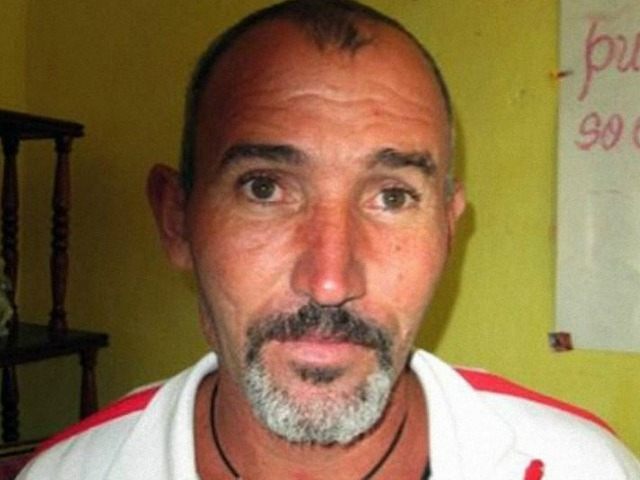The Cuban government has begun feeding political prisoner Vladimir Morera Bacallao “against his will,” his wife says, more than 80 days since he began a hunger strike protesting his arrest for hanging an anti-communist sign on his window.
“Due to his state, he is not lucid and is disoriented, like a bit lost, he doesn’t know what his legal situation is,” Maribel Herrera, his wife, told the Spain-based Diario de Cuba this week. “If he were right in his faculties he would not have stopped his hunger strike,” she added, saying Morera is eating “against his will.”
“I can’t say he stopped his hunger strike,” his son, Vladier, added. “I can only say he is eating and says incoherences because, according to doctors, he is very weak.”
A Twitter account alleging to belong to Librado Linares, a dissident close to Morera, tweeted on Monday that Cuban doctors have given him “a substance that affects his conscience” to make him eat, and that “he is practically being forced to eat.”
14ymedio, an independent outlet based in Cuba, reports the government began “administering nutrients” to Morera on December 30, his 82nd day on the hunger strike. It also quotes Linares saying he was first issued an intravenous medication, “felt his conscience altered, and, from then, having lost his will, they began to administer nutrients.” He noted nurses have told relatives he has been able to properly digest what he has ingested.
Guillermo Fariñas, a prominent member of the Cuban dissident community who has personally conducted 24 hunger strikes, told U.S.-based Martí Noticias that, from the information he has been able to gather, he believes Morera has been administered sedatives to make him more compliant. He notes that, to the best of his knowledge, the Cuban government did not ask Morera or his relatives for consent before ending his strike.
International consensus considers force-feeding of hunger strikers, or otherwise forcibly ending their hunger strike, a violation of human rights law – at least when those accused are from the Israeli or United States governments. “It is not acceptable to force-feed or use threats of force-feeding or other physical or psychological coercion against individuals who have opted for the extreme recourse of a hunger strike to protest against their detention without charge and conditions of detention and treatment,” Juan Méndez, special rapporteur on torture and other cruel, inhuman or degrading treatment or punishment for the United Nations Office for Human Rights, said in June 2014, adding, “Even if it is intended for the benefit of the detainees, feeding induced by threats, coercion, force or use of physical restraints are tantamount to cruel, inhuman and degrading treatment.” The UN issued his remark as part of a larger statement urging the Parliament of Israel not to consider a law that would allow for force-feeding. In Morera’s case – a non-theoretical case of force-feeding – the UN has yet to pronounce itself.
“Force-feeding has been labeled a violation on the ban of cruel, inhuman and degrading punishment. The World Medical Association holds that it is unethical for a doctor to participate in force-feeding. Put simply, force-feeding violates international law,” The New York Times’ Joe Nocera wrote a year earlier, regarding terrorists and suspected jihadists being held at the American military base in Guantánamo Bay. On Cuba, The New York Times is urging the United States to ignore cases like Morera’s and stop granting political asylum to Cuban refugees, refusing to call them refugees and instead branding them “migrants.”
Morera began his hunger strike on October 9 to protest his arrest following the display of a sign on his window reading, “I vote for my freedom, and not in one of those elections where I can’t even choose a president.” The sign was meant to protest legislative elections; in Cuba, only Communist Party members can run for legislative seats. He was sentenced to four years in prison for the sign. Morera had been previously released from prison in January 2015 as part of President Obama’s “normalization” deal with Cuba. Most of the 53 prisoners released in that move have since been rearrested.

COMMENTS
Please let us know if you're having issues with commenting.